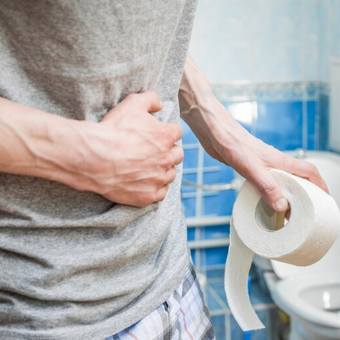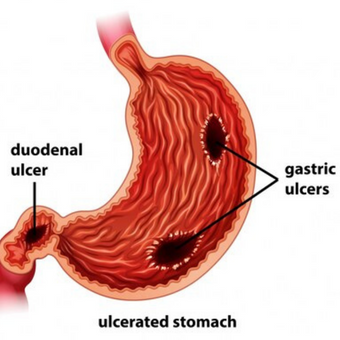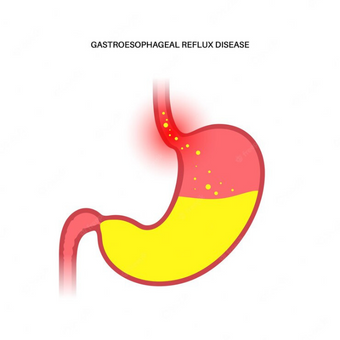Digestive disorders often tend to be uncomfortable. Though some digestive problems get resolved on their own, there are certain digestive problems that cannot get resolved on their own and may point toward a chronic digestive disorder. They may also require medical assistance. Suffering from a digestive disorder can hamper the daily life of a person as they cannot focus on their task and will feel uncomfortable most of the time. Digestive disorders tend to affect the organs of the digestive system, including the gall bladder, gastrointestinal tract, liver, etc. The digestive system of the body is responsible for breaking down the food which a person eats to supply nutrients for the body. However, due to digestive disorders, this process becomes ineffective.
People across the world suffer from a few common digestive disorders; they occur primarily due to the lifestyle habits of a person as well as the diet that a person follows. They are unlike other digestive problems, which get resolved on their own through medicines. Hence, to know more about common digestive disorders and how to treat them with digestive disorder medicines, following this article will help:
Chronic Diarrhoea
One of the most common digestive disorders which people usually suffer from is chronic diarrhea. It refers to loose and runny stool and a tendency to have to excrete often. It occurs with cramping or spasms in the colon during excretion. This digestive problem occurs due to flu or food poisoning, and it goes away when the original infection also subsides. Chronic diarrhea usually occurs for 4 continuous weeks. It is found that nearly 1-3% of the population suffers from this problem.

Commonly, digestive disorder medication comprises NSAIDs such as ibuprofen and aspirin; antibiotics such as cephalexin and amoxicillin, higher doses of certain mineral and vitamin supplements, antacids, etc. Symptoms of chronic diarrhea comprise bloating, nausea, stomach cramps, a sense of urgency to pass stool, frequent bowel movements, etc. The diagnosis of this digestive disorder is usually made through stool sample tests, blood tests, ultrasound scans, etc.
Ulcers
Ulcer, also known as peptic ulcer, is another common digestive disorder that people usually suffer from. Peptic ulcer disease refers to an open sore in the upper part of the small intestine or the lining of the stomach. The common symptom associated with this digestive disorder is stomach pain. Peptic ulcers occur on the inside part of the stomach, and duodenal ulcers occur on the inside portion of the small intestine. Moreover, long-term use of some digestive disorders medicines such as NSAIDs and naproxen sodium will cause peptic ulcers in the stomach. The symptoms of peptic ulcer include heartburn, nausea, vomiting, burning stomach pain, feeling fullness, etc.

Chronic Constipation
Another common digestive disorder that people usually suffer from, is chronic constipation. Chronic constipation is a digestive disorder that is characterized by having less than three bowel movements a week for three weeks or longer duration. Unable to have effective bowel movement troubles the person suffering from this disease; they are unable to make efficient concentration in their daily life and thus feel uncomfortable all the time.

Also Read: 9 Home Remedies to Cure Constipation Naturally
Chronic constipation usually occurs when the colon absorbs too much water from the waste and thus dries out the stool making it hard in terms of consistency and thereby making it difficult to push it out from the body. The common causes of this digestive disorder include pelvic floor dysfunction, metabolic or endocrine problems, narrowing of the colon, bowel disease such as colon cancer or Crohn’s disease, etc.
Hemorrhoids
People who are usually 45 years and above experience the digestive disorder of hemorrhoids. Hemorrhoids, also known as piles refer to the swollen veins in the lower rectum and anus portion. It usually develops inside the rectum or under the skin around the anus. The symptoms of hemorrhoids comprise pain or discomfort, swelling, bleeding, itching or irritation in the anal region, etc. Suppose people suffering from this problem experience bleeding during the bowel movement and this does not improve within a few days or within a week. In that case, it becomes imperative to consult a doctor. If this digestive disorder does not get cured within a week, it can become worse, and the only option left for its treatment would be through the use of digestive disorders medicine. People can try treating this at home in the initial stages through the use of OTC medications such as ointments, cold packs, etc.

Gastroesophageal Reflux Disease
Gastroesophageal reflux disease, also known as GERD, is yet another common digestive disorder that people suffer from. When stomach acid breaks up in the esophagus, this condition is known as acid reflux. The person suffering from this problem feels a burning pain inside the middle of their chest. This usually occurs after taking meals at night. It tends to be common for people to experience acid reflux and heartburn once in a while. People suffering from this condition can get relief by avoiding certain foods and beverages which trigger this disease and its symptoms. Taking counter medicines such as antacids and other medicines helps to reduce the acid production in the stomach and thus also reduces the inflammation of the esophagus. Moreover, some changes in lifestyle, such as lot lying down after a meal, elevating the head of the bed, etc., will also provide some relief.

Thus, above, we have discussed the 5 common digestive disorders which people usually suffer from. Digestive disorders are becoming a common issue among people; this occurs primarily due to changes in lifestyle and diet. Once they occur, they hamper an individual’s regular and daily life and make an individual feel uncomfortable throughout the day.
